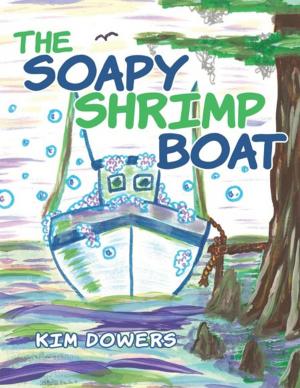| Author: | Tamara Field | ISBN: | 9781491838082 |
| Publisher: | AuthorHouse | Publication: | December 27, 2013 |
| Imprint: | AuthorHouse | Language: | English |
| Author: | Tamara Field |
| ISBN: | 9781491838082 |
| Publisher: | AuthorHouse |
| Publication: | December 27, 2013 |
| Imprint: | AuthorHouse |
| Language: | English |
I first heard of Milk Soy Protein Intolerance (MSPI) in January of 1997 at the office of a Pediatric Gastroenterologist who had just performed a procto-sigmoidoscopy and biopsy on my 7 week old son. He told me that Maxs digestive problem was MSPI and that it would be much easier for me if I stopped breastfeeding now and put him on a special formula. Of course, at that moment my head was spinning; I had finally found out the reason my son had been screaming the first 7 weeks of his life and though I wanted to continue breastfeeding I did not want to cause him anymore pain. The Doctor told me that there was a diet I could follow to continue breastfeeding, but that it was very difficult to follow. Wanting to make the best choice for my son I stopped breast-feeding that day and started him on formula. In retrospect, the physician was right, even though I regret that I did not continue breastfeeding, with the demands of a new infant, and trying to figure out a complicated diet, would have been completely overwhelming. I knew though, that if I had any more children, I would try any diet possible in order to breastfeed. So, during the first few months of my pregnancy with my second son, Nate, I began preparing for the MSPI diet. Determined that I would not lack for good things to eat, and that I would find chocolate that was acceptable on this diet, I started shopping. Little by little, I found many alternatives for the food I previously enjoyed (the only exception being cheese!). I found chocolate, cake, brownies, casseroles, pasta, rice milk, rice, breads, fast food, eating out, and so much more, even a substitute for ice cream! It just took a lot of planning and a bit of ingenuity.This book is intended for the mother that has just heard her infant has milk soy protein intolerance and to begin the diet right away. This will help the mother find food she can eat, and thus continue breastfeeding her child.
I first heard of Milk Soy Protein Intolerance (MSPI) in January of 1997 at the office of a Pediatric Gastroenterologist who had just performed a procto-sigmoidoscopy and biopsy on my 7 week old son. He told me that Maxs digestive problem was MSPI and that it would be much easier for me if I stopped breastfeeding now and put him on a special formula. Of course, at that moment my head was spinning; I had finally found out the reason my son had been screaming the first 7 weeks of his life and though I wanted to continue breastfeeding I did not want to cause him anymore pain. The Doctor told me that there was a diet I could follow to continue breastfeeding, but that it was very difficult to follow. Wanting to make the best choice for my son I stopped breast-feeding that day and started him on formula. In retrospect, the physician was right, even though I regret that I did not continue breastfeeding, with the demands of a new infant, and trying to figure out a complicated diet, would have been completely overwhelming. I knew though, that if I had any more children, I would try any diet possible in order to breastfeed. So, during the first few months of my pregnancy with my second son, Nate, I began preparing for the MSPI diet. Determined that I would not lack for good things to eat, and that I would find chocolate that was acceptable on this diet, I started shopping. Little by little, I found many alternatives for the food I previously enjoyed (the only exception being cheese!). I found chocolate, cake, brownies, casseroles, pasta, rice milk, rice, breads, fast food, eating out, and so much more, even a substitute for ice cream! It just took a lot of planning and a bit of ingenuity.This book is intended for the mother that has just heard her infant has milk soy protein intolerance and to begin the diet right away. This will help the mother find food she can eat, and thus continue breastfeeding her child.















